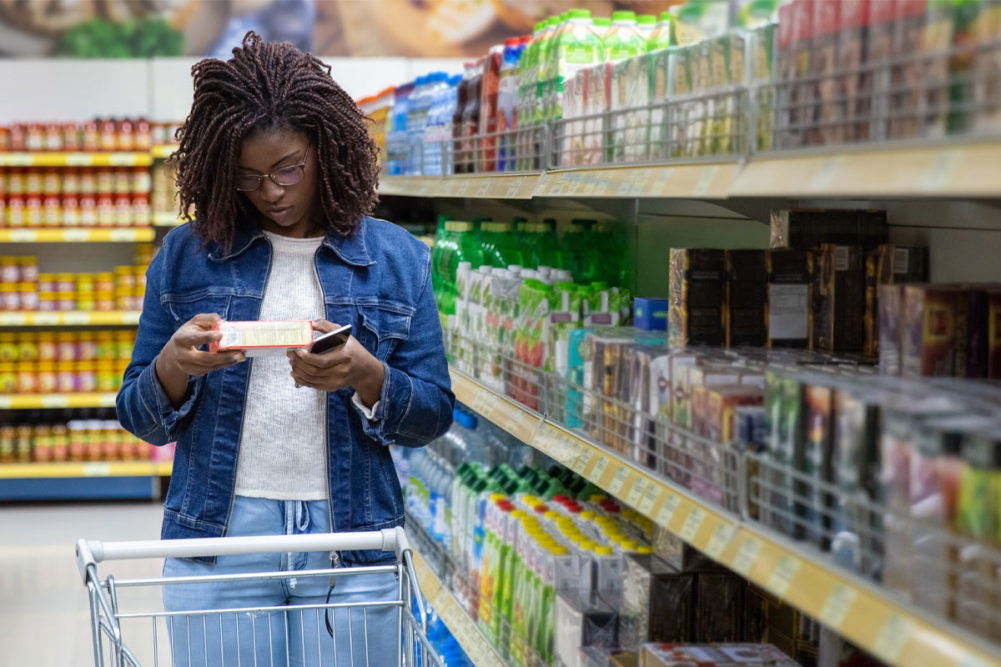KANSAS CITY, MO. — The US Department of Agriculture’s organic seal remains prominent on many product labels, and increasingly, it is gaining company. Other certifications and sustainable promotions are emerging, gaining in sales and becoming familiar to more consumers.
The “little butterfly,” which signifies Non-GMO Project certification, flutters on products globally. More consumers are becoming curious about regenerative agriculture and Upcycled Certified enjoyed a successful first year.
US organic food sales rose to $57.5 billion in 2021, up 2% from 2020 and compared to about $28 billion in 2012, according to a survey released in June by the Organic Trade Association, Washington. Grand View Research, Inc., San Francisco, projects the global organic food and beverages market to reach $564.22 billion by 2030 by having a 13% compound annual growth rate from 2022 to 2030.
The Hartman Group, Bellevue, Wash., surveyed over 2,800 US adults in February and found 83% said they used organic products at least occasionally and 34% said they used them weekly or more often. The survey also examined other issues. When asked about hydroponic farming, 73% said they already use it, were very interested or were somewhat interested. Other percentages were 67% for certified transitional organic and 67% for regenerative agriculture, which focuses on issues like soil health.
This year’s Food and Health Survey from the International Food Information Council (IFIC), which was released in May, revealed 39% of respondents said they regularly buy products labeled as natural, which led clean ingredients at 27%, raised without antibiotics at 25%, no added hormones or steroids at 25%, locally sourced at 25%, organic at 25%, non-GMO at 23%, plant-based at 15%, fair wage or fair trade at 14%, small carbon footprint/carbon neutral at 13% and bioengineered/containing bioengineered ingredients at 7%.
A US Trend Index from Frito-Lay, a business of PepsiCo Inc., published June 29 found interest in sustainability issues among consumers who snack daily. Top values driving purchase decisions included snack companies’ attention to sustainability practices at 77%, attention to community impact around food access at 78% and treatment of employees at 87%. The poll of 2,200 US adults was conducted online May 26-27.
“Today’s consumers are seeking more information about their foods and beverages than ever before, and product packs that include how ingredients are produced and sourced are capturing shopper attention,” said Michelle French, director of global sustainability programs for Chicago-based ADM.
She pointed to Nielsen data showing 73% of global consumers said they felt more positive about companies that are transparent about where and how products were made, raised or grown.
“With that, food and beverage manufacturers are pursuing more credentials for farming and sourcing practices they can share with consumers,” French said. “This demand is especially heightened around ingredients derived from natural sources such as plants, fruits, vegetables or botanicals, due to consumers’ desire for closer-to-nature ingredients and shopping their values.
“We support our customers in reaching these targets through our ambitious sustainability programs, including responsible sourcing and regenerative agriculture programs. Notably, we work with growers to identify and implement practices that can reduce environmental impact, sequester carbon in the soil and improve on-farm economics and labor conditions.”



